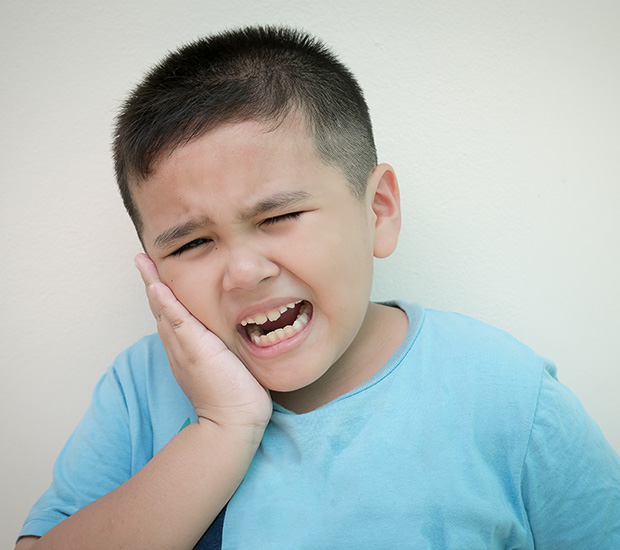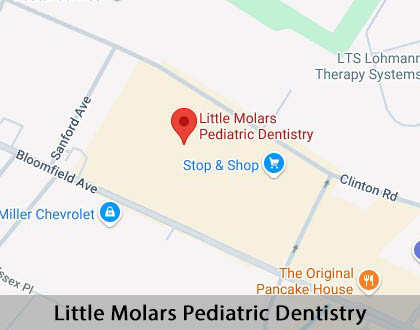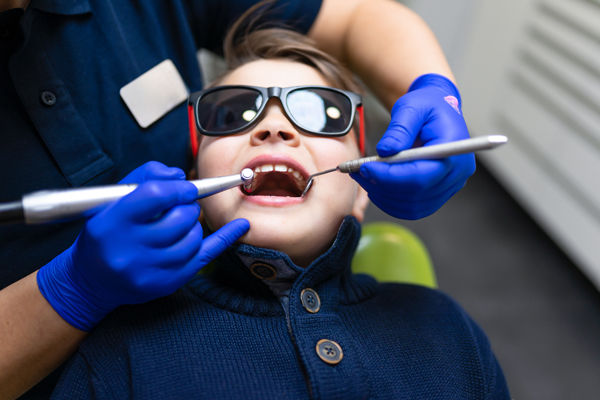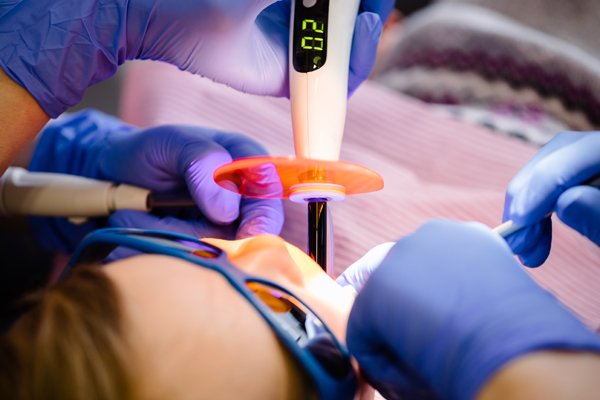Emergency Pediatric Dental Care West Caldwell, NJ
During a dental emergency, patients need help fast. A qualified dentist delivers treatment, makes a diagnosis, and creates a care plan. Pediatric dentists soothe even the youngest patients. They also help parents understand treatment options. A pediatric dentist offers much-needed reassurance and support during emergencies.
Emergency pediatric dentistry is available at Little Molars Pediatric Dentistry in West Caldwell and the surrounding area. Our team provides on-the-spot care if something goes wrong with your child's mouth. We help parents learn to prevent future tooth problems, too. Call us at (862) 451-8222 to learn more about our services.
Emergency Dental Services for Children
Pediatric dental emergencies can develop without warning. Often, childhood dental emergencies include:
- Oral bleeding
- Knocked-out permanent teeth
- Chipped or cracked teeth
- Fractured jaw
- Tooth pain
Dental emergencies can worsen quickly, and the injury may be more severe than it appears. When in doubt, call the dentist right away. A qualified dentist can determine the extent of the problem.
Seek an immediate evaluation if your child suffers a blow to the head or face. These injuries can sometimes be life-threatening. Do not wait until your dental office reopens. Instead, call 911 or go to the nearest emergency room.
A qualified provider can perform an in-depth exam. They can also create a treatment plan. Patients may need surgery, stitches, or medication after a dental injury. Some patients may need to visit the dentist several times to repair the damage. Your dental provider can explain more about the treatment timeline.
“Dental emergencies can worsen quickly, and the injury may be more severe than it appears.”
Recognizing Dental Emergencies in Children
Dental emergencies often occur after a fall or sports injury. Car or bicycle accidents can result in dental injuries too. A child might also cut their mouth or break a tooth while eating. Babies and toddlers often injure their mouths by chewing on objects besides food, such as toys, clothing, and more.
Many dental emergencies remain clear-cut: children may have oral bleeding or visible damage. Older children can also let their parents know when they have a toothache. But diagnosing dental emergencies in young children can be tricky. Toddlers and infants usually cannot verbalize their discomfort.
Notify your dental provider if your child has trouble chewing or swallowing. If your child does not eat or suck, it can be a sign of dental pain. Watch for facial swelling or unusual drooling too.
“Notify your dental provider if your child has trouble chewing or swallowing.”
When to Call 911
The loss of a permanent tooth constitutes a dental emergency. If your child's tooth has been knocked out, rinse it with clean water. Then reinsert the tooth into the jaw, if possible. If reinsertion is not an option, put the tooth in a glass of milk. Call the dentist immediately. If the dental office is closed, call 911 or go to the nearest emergency room. Dental providers can often restore the tooth if you act quickly. But time is of the essence. Do not wait until the dental office reopens. Seek immediate care.
Contact your dental or medical provider if your child develops swollen cheeks. Facial swelling can be a sign of an infection. Oral infections can spread rapidly and may be life-threatening. If you cannot reach your usual provider, visit the emergency room.
Head injuries represent another reason to seek an immediate evaluation. If your child suffers a blow to the head, get help right away. Medical providers can perform tests to check for bone fractures or brain injury.
After visiting the ER, contact the dentist's office. Let our team know that your child experienced a dental emergency. We may decide to schedule a follow-up appointment to check on your child's recovery. We also provide follow-up care, including restorative dental treatments.
“If your child suffers a blow to the head, get help right away.”
Check out what others are saying about our dental services on Yelp: Emergency Pediatric Dental Care in West Caldwell, NJ
How to Prepare Your Child for Care During an Emergency
Parents and children often panic during a dental crisis. While anxiety represents a natural response to an emergency, parents need to stay calm. Children take their cues from adults. If parents remain calm, children can better manage their own emotions.
If necessary, begin by administering first-aid. Apply pressure to slow or stop bleeding. Recover any knocked-out tooth or a broken dental appliance. If you suspect a jaw injury, gently tie a towel or bandana around your child's jaw. Instruct your child to keep their mouth motionless.
Next, explain that your child will need to see a doctor or dentist. The medical or dental staff will help the child feel better. If possible, try to remain positive and upbeat. Provide your child with encouragement and reassurance.
“While anxiety represents a natural response to an emergency, parents need to stay calm.”
Questions Answered on This Page
Q. What is a pediatric dental emergency?
Q. How can I tell if my child has a dental emergency?
Q. When should I call 911 for a dental emergency?
Q. How can I prepare my child for an emergency dental visit?
Q. Where is my child most likely to experience a dental emergency?
People Also Ask
Q. Is pain while chewing a sign of a cavity?
Q. How do I find the right dentist for my child?
Q. What information should I consider as I choose a pediatric dental provider?
Where Child Dental Emergencies Take Place
Most childhood dental emergencies occur on the playground or sports field. Children often injure their mouths by playing sports or falling off a jungle gym. Parents can prevent dental emergencies by ensuring that children follow basic safety precautions. A mouthguard can also help protect your child's teeth. Mouthguards remain especially important for children with braces or other dental appliances.
Children can also suffer mouth injuries while chewing on non-food items. Do nott allow your child to chew or suck on household objects. Instead, offer young children pacifiers or store-bought chewing toys. Mash or cut up your toddler's food and never offer sharp foods like hard candies. Always supervise young children during snacks or mealtime.
“Most childhood dental emergencies occur on the playground or sports field.”
Frequently Asked Questions
Q. What is a dental emergency?
A. A dental emergency can include:
- Knocked-out teeth
- Oral bleeding
- Oral pain or swelling
- Jaw injuries
- Chipped or cracked teeth
Call your pediatric dentist right away if you suspect a dental emergency. Dental emergencies can worsen without warning. If care gets delayed, your child's health may be at risk. An immediate evaluation can help resolve the problem.
Q. What should I do during a dental emergency?
A. If a permanent tooth has been knocked out, gently rinse it with clean water. Do not touch the root. Then reinsert the tooth into the socket. If this is not possible, place the tooth in a glass of milk. In cases of oral bleeding, apply gentle pressure.
If your child has a broken tooth or jaw injury, tell them not to move their jaw. Tie a bandana or towel to keep their mouth motionless. Do not offer any food, and have your child sip water gently.
No matter the nature of your dental emergency, get help right away. Call your pediatric dentist at once and explain the problem. If you cannot reach your provider, head to the emergency room.
Q. What kind of care will my child receive during a dental emergency?
A. During a dental emergency, the pediatric dentist examines your child's mouth. They may take X-rays or other measurements. This information helps the provider make a diagnosis. Once they have determined the problem, your dentist discusses the treatment plan.
Treatments can vary. Sometimes, your dentist may deliver the treatment during multiple office visits. Your child can expect at least one follow-up appointment to check their recovery. Your dentist can explain how long your child's treatment will take.
Q. What kind of follow-up care is required?
A. After a dental emergency, the pediatric dentist generally schedules a follow-up visit within 24-72 hours. During this visit, the dentist checks to ensure your child is healing well. They confirm the success of the initial treatments. If necessary, the dentist makes plans for the next stage in treatment. These follow-up visits help ensure a smooth recovery.
Q. How can I prevent childhood dental emergencies?
A. Mouthguards play a crucial role in preventing childhood dental problems. If your child remains active, ask your pediatric dentist for a custom-fitted mouthguard. These devices protect the teeth and gums during athletics activities.
Do not allow your child to chew on nonfood objects, aside from approved teething rings. Supervise young children during mealtimes, and do not let children walk while eating or drinking. Always ensure that your child wears a helmet while biking or rollerblading. Discuss common-sense safety precautions to help avoid accidents.
Quality Pediatric Dental Services Can Transform Smiles
By visiting us as soon as possible, our team can help get your child the professional treatment they need.
Definition of Pediatric Dental Terminology
Call Us Today
Childhood dental emergencies can be frightening. Our team helps families cope with confusing or upsetting dental problems. We also provide follow-up care to ensure that your child makes a complete recovery.
Do not put off seeking emergency dental care. Let Little Molars Pediatric Dentistry in West Caldwell help. Call us at 862-451-8222 to learn more about our services and policies.
Helpful Related Links
- American Dental Association (ADA). Glossary of Dental Terms. 2024
About our business, license, and website security
- Little Molars Pediatric Dentistry was established in 2023.
- We accept the following payment methods: Cash, Discover, MasterCard, and Visa
- We serve patients from the following counties: Essex County
- We serve patients from the following cities: West Caldwell, Caldwell, North Caldwell, Fairfield, East Hanover, Montville, Verona, and Montclaire
- Norton Safe Web. View Details
- Trend Micro Site Safety Center. View Details







